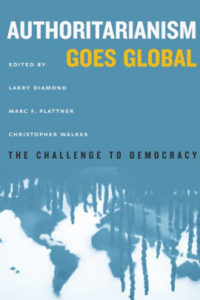Foreign Policy – Yale Global – 5.2.2019
China’s Slowing Economy
China’s latest economic stimulus package may be futile in the face of rising debt, stagnant productivity and an unresolved trade war with the United States
Keith Johnson
China injected a record $83 billion stimulus package in January, highlighting the world’s second-largest economy’s desire to jumpstart growth in the new year after scoring a 28-year low in its rate of growth for 2018. Even though the Chinese government posted a 6.6 percent growth last year, experts question the accuracy of official data. So what is the true extent of China’s economic slowdown? Foreign Policy’s Keith Johnson reports that the intensifying trade war with the Trump administration and China’s “incoherent” fiscal policies are perhaps to blame. The tariff tit-for-tat with the United States gained momentum in fall of 2018, which means the consequences of the trade war are only beginning to show. If the two sides do not reach an agreement, the chilling effects of a downturn would become more apparent. In addition, Johnson writes that the Chinese government handed out contradictory policies that led to mounting debt and low investment returns. The key to avoiding a slowdown? A sharp increase in productivity. – YaleGlobal
What’s really going on with China’s economy? It’s a $13 trillion question with massive implications for the continued rule of the Chinese Communist Party and President Xi Jinping, as well as the rest of the world, for much of which China is the No. 1 trading partner.
Officially, things are right on track. The latest GDP numbers for the fourth quarter and the full year of 2018, released this week, show exactly the managed, modest slowdown in economic growth that Beijing promised to deliver: 6.6 percent annual growth in the world’s second-largest economy. Even as headlines trumpeted a 28-year low in China’s growth rate, that was just what party leadership had pledged, knowing that the double-digit growth rates posted earlier this century were never coming back.
The problem is that nobody (well, almost nobody) trusts the official Chinese economic data, including especially its GDP figures. That’s because economic growth, and the statistics to back it up, is more a political target in China than a reflection of the true state of the economy. And for years, Chinese officials at all levels of government cooked statistics to meet those political objectives.
“Whenever there’s a problem, Chinese data are meaningless,” said Derek Scissors, a resident scholar at the American Enterprise Institute. “The problem in this case is a clear economic slowdown over the last nine months. Nothing China publishes in this setting can be trusted.”
For example, Scissors notes, Chinese data about the economy don’t add up: Officially, telecom equipment sales rose, except when they didn’t. Other indicators of how the real economy is performing, such as electricity consumption or the amount of freight shipped by rail, don’t seem to correspond to the headline GDP numbers in any given year. Also, unlike GDP statistics in other economies, official Chinese numbers suspiciously show almost no variation from quarter to quarter.
Getting a handle on what’s really going on with the world’s second-largest economy is hugely important for multinational firms, such as auto companies or Apple, which have to make investment decisions based on expectations of demand from China’s massive internal market. And properly understanding just how resilient the Chinese economy is matters a great deal to policymakers around the world; a sudden slowdown could accelerate domestic political aggravation for Xi and the Communist Party, which has relied on supercharged growth to keep its population quiescent.
The consensus view among economists is that China’s economic growth did slow down last year, and especially at the end of the year, as the trade war with the United States intensified.
“If officials keep telling us that the slowdown merits concern, keep telling us that new stimulus measures are coming,” said George Magnus, an expert on the Chinese economy at the University of Oxford’s China Centre, “I think we can assume with confidence that all is not well.”
That does sort of show up even in official statistics. Auto sales in China fell last year for the first time in almost two decades, a clear sign that nervous consumers are putting off big-ticket purchases.
“The deceleration is coming on the consumption front, mainly—there’s a massive collapse of demand for durable goods, especially automobiles,” said Alicia García-Herrero, the chief Asia-Pacific economist at the French bank Natixis. “Anything that requires a longer-term investment, that’s where you see a collapse.”
The reasons for the slowdown in China’s rate of growth are many. The global economy is losing steam, reducing demand for Chinese manufactured goods; the International Monetary Fund (IMF) this week trimmed its forecast for annual global economic growth from 3.7 percent to 3.5 percent, and the head of the European Central Bank (ECB) on Thursday warned of growing risks to Europe’s economy.
For China, still the workshop of the world, an increasingly gloomy outlook for global trade is also a problem. The trade war with the United States, which began in earnest last fall, hasn’t had time to do more than dent China’s prospects so far. But if ongoing trade talks between Beijing and Washington fail to deliver a broad agreement, and if the Trump administration follows through on its vow to more than double tariffs on almost everything China exports to America, that could change dramatically.
Fundamentally, though, China’s own policies are to blame for its economic woes, stressed Magnus, who last year published Red Flags, a book about the country’s economic challenges.
Banks are forced by the government to lend, and companies of all sizes are struggling with debt, made even harder to bear now that the Chinese yuan is weaker and interest rates are rising. Also, under Xi, the economy’s resources have been increasingly channeled toward state-owned firms, which are less efficient than private sector companies.
That makes China’s planned response—another huge stimulus—unlikely to be more than a short-term Band-Aid. Beijing already started pumping more money into the economy last year, running a large fiscal deficit, and has a much bigger stimulus package planned for 2019 to reignite growth.
For the last five years, for example, China throttled back public spending on railway construction, seeking to rein in local government debt. That kind of restraint is out the window, with plans afoot for more than 4,000 miles of new rail line this year, including 2,000 miles of new high-speed track—more than exists in all of Spain, which took nearly three decades to build Europe’s biggest high-speed rail network.
When China began its economic reform four decades ago, the return from government investment to build infrastructure was huge. Now that the economy is already so large, the payoff from spending hundreds of billions of dollars more is a lot less.
“The return on dumping more savings into government-dictated investment is now very low,” Scissors said. Without a sharp focus on increasing productivity, “all that’s going to happen is a minor variation on slower true growth and a higher debt burden—a more gradual version of the Japanese slowdown, plus Communist Party propaganda.”
To boost consumption, Beijing is also trying to inject more cash into the economy even as companies and consumers are choking on debt. Halfhearted efforts over the past year to boost lending haven’t worked yet because sentiment has been so negative, García-Herrero said.
“Banks do not want to lend, so the government is forcing them to lend. The idea is to put money where it is more productive, in the private sector,” she said, adding that she expects the new policy will end up injecting money into the economy over the short term because the banks will have no choice but to comply.
The hitch is that the solutions needed to keep the economy humming in the short term are at odds with China’s own prescription for sustainable growth over the longer term.
“The problem is that China’s policies have become incoherent,” Magnus said. The country is simultaneously trying to shed debt while hitting ambitious growth targets; trying to make banks more disciplined while forcing more loans to companies that might default; trying to boost the role of the private sector while ensuring that state-owned giants become even bigger and more powerful.
There are huge implications, at home and abroad, of China’s slowing economy and the Communist Party’s efforts to deal with it. Trump points to China’s slowdown as proof that his tariffs are working and expects it will force Beijing to make big concessions to Washington. The two countries are racing to reach a sweeping agreement over the next month ambitiously meant to address long-standing U.S. concerns about China’s economic behavior, especially the dominant role of the state and pervasive theft of foreign technology.
But there’s little indication that even a slowing economy will twist Xi’s arm enough to make him cave to Trump.
“The slowdown mildly increases the odds Xi will pretend to compromise, plus buy commodities” like American agricultural goods, natural gas, and oil, Scissors said. China made a modest offer to buy more U.S. goods last spring and reportedly just offered to buy a lot more products to win a truce in the trade war. But that’s about it.
“There is no chance Xi will compromise on American demands for structural change—he has no alternative model for Chinese development other than to acquire technology by any means necessary and to subsidize state-owned enterprises,” Scissors said.
What happens with China’s economy also has a huge impact on the rest of the world. Both the IMF and the ECB cited China’s slowdown, along with Trump’s trade wars and Brexit, as reasons for the growing pessimism about economic prospects.
García-Herrero expects the beefed-up stimulus to keep China’s economy in decent shape this year—she expects GDP growth of about 6.3 percent—but warns that a sharper slowdown would hammer emerging markets, many of which depend on China’s near-bottomless appetite for all sorts of commodities, including farm products, iron, coal, and oil.
Simply muddling through in the short term, though, doesn’t address the fundamental economic ills China faces. More than a decade ago, then-Premier Wen Jiabao famously dinged the fast-growing Chinese economy as “unstable, unbalanced, uncoordinated, and unsustainable.” Despite years of efforts to rebalance the economy away from heavy industry, cheap exports, and huge government spending, China has yet to come to grips with any of the issues Wen flagged.
“Somehow, sometime, the state is going to bite its lip and allow growth to slip to a sustainable rate, which may not be a lot higher than 3 percent,” Magnus said. “Much depends on whether the government decides to bite the bullet now or only after another attempt to kick the can down the road. The longer they try to avert the acclimatization to lower growth, the more unbalanced the economy will become and the longer the rebalancing will take.”


 Two countries experienced dramatic declines in 2018, the report adds. Hungary fell from “Free” to “Partly Free” status as Prime Minister Viktor Orban’s government “presided over the
Two countries experienced dramatic declines in 2018, the report adds. Hungary fell from “Free” to “Partly Free” status as Prime Minister Viktor Orban’s government “presided over the Authoritarianism is increasingly a cross-border enterprise, Freedom House adds.
Authoritarianism is increasingly a cross-border enterprise, Freedom House adds. Declining standards in established Western democracies have a knock-on effect for
Declining standards in established Western democracies have a knock-on effect for “Of the 41 countries consistently ranked Free from 1985 to 2005, 22 have registered net score declines in the last five years,”
“Of the 41 countries consistently ranked Free from 1985 to 2005, 22 have registered net score declines in the last five years,” was among the countries that received praise due to “a breakthrough” victory for “reform-minded” opposition leader Nikol Pashinian, who became prime minister in 2018 through early elections called “after unpopular incumbent [Serzh Sarkisian] attempted to evade term limits and extend his rule,”
was among the countries that received praise due to “a breakthrough” victory for “reform-minded” opposition leader Nikol Pashinian, who became prime minister in 2018 through early elections called “after unpopular incumbent [Serzh Sarkisian] attempted to evade term limits and extend his rule,”

